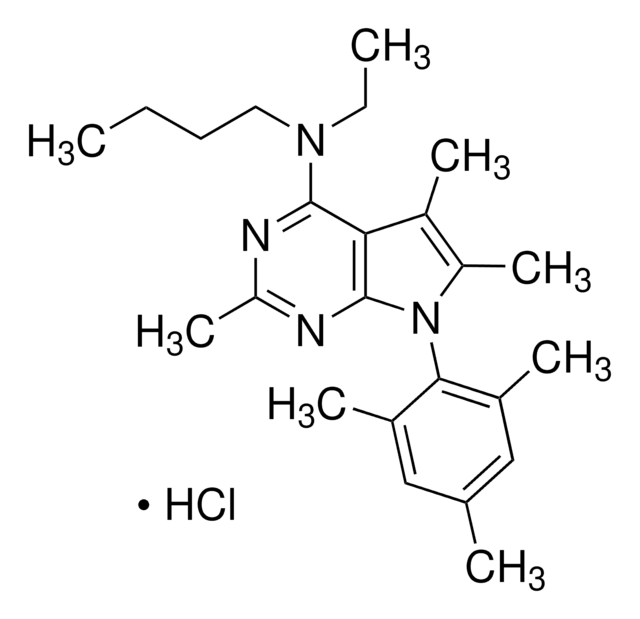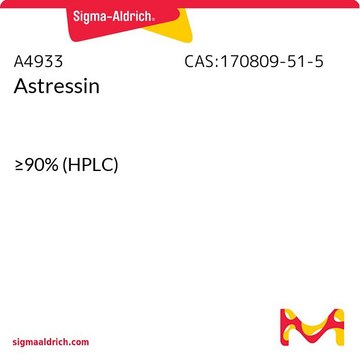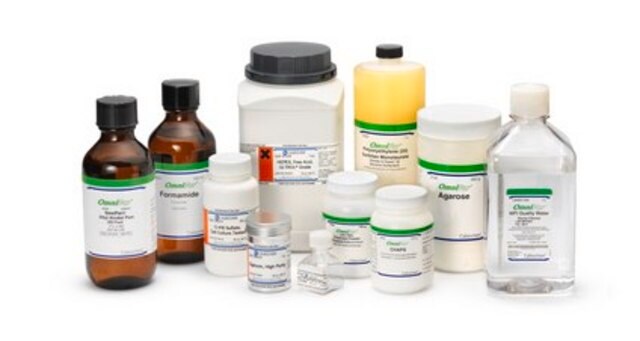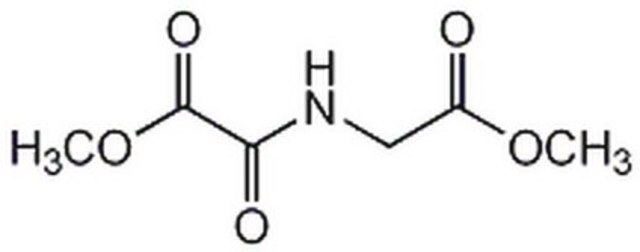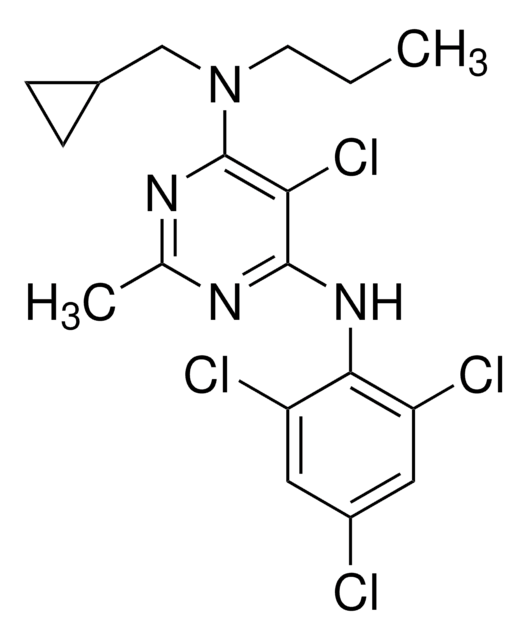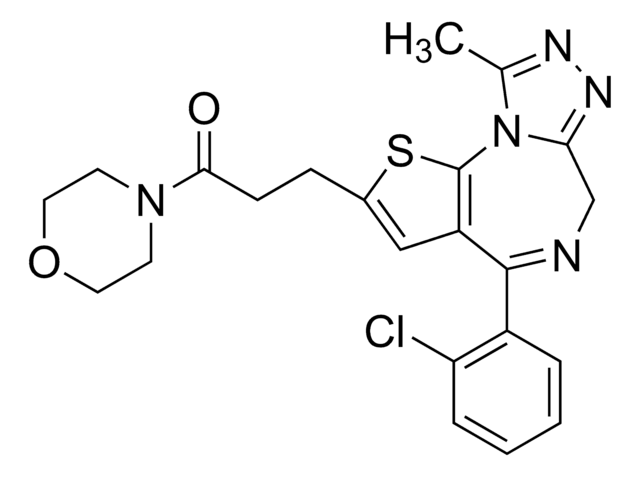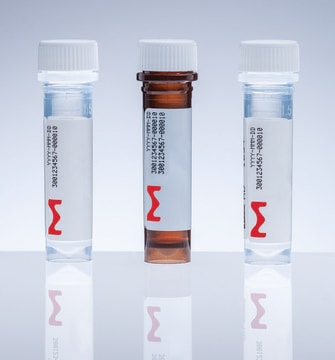C2917
Corticotropin Releasing Factor Antagonist
≥97% (HPLC)
Synonym(e):
α-Helical CRF (9-41), α-Helical corticotropin releasing factor fragment (9-41)
Anmeldenzur Ansicht organisationsspezifischer und vertraglich vereinbarter Preise
Alle Fotos(1)
About This Item
Empirische Formel (Hill-System):
C166H274N46O53S2
CAS-Nummer:
Molekulargewicht:
3826.36
MDL-Nummer:
UNSPSC-Code:
51111800
NACRES:
NA.32
Empfohlene Produkte
Qualitätsniveau
Assay
≥97% (HPLC)
Form
powder
Lagertemp.
−20°C
Angaben zum Gen
human ... CRH(1392)
mouse ... CRH(12918)
rat ... CRH(81648)
Suchen Sie nach ähnlichen Produkten? Aufrufen Leitfaden zum Produktvergleich
Amino Acid Sequence
Asp-Leu-Thr-Phe-His-Leu-Leu-Arg-Glu-Met-Leu-Glu-Met-Ala-Lys-Ala-Glu-Gln-Glu-Ala-Glu-Gln-Ala-Ala-Leu-Asn-Arg-Leu-Leu-Leu-Glu-Glu-Ala-NH2
Biochem./physiol. Wirkung
Exhibits 10-fold higher affinity for rat CRF2α receptors over human CRF2α receptors.
The corticotropin releasing factor (CRF) antagonist α-helical CRF [9-41] exhibits 10-fold higher affinity for rat CRF2α receptors over human CRF2α receptors. It has been used to elucidate the role of CRF in various physiological systems. In colonic epithelium, it abolishes CRF-induced changes in ion secretion, and significantly inhibits CRF-stimulated conductance. It antagonizes the CRF-induced proinflammatory degranulation of perivascular mast cells that are activated in response to acute psychological stress and CRF secretion.
Sonstige Hinweise
Lyophilized from 0.1% TFA in H2O
Lagerklassenschlüssel
11 - Combustible Solids
WGK
WGK 3
Flammpunkt (°F)
Not applicable
Flammpunkt (°C)
Not applicable
Persönliche Schutzausrüstung
Eyeshields, Gloves, type N95 (US)
Hier finden Sie alle aktuellen Versionen:
Besitzen Sie dieses Produkt bereits?
In der Dokumentenbibliothek finden Sie die Dokumentation zu den Produkten, die Sie kürzlich erworben haben.
S Y Cheng et al.
Neuroscience, 169(1), 236-245 (2010-04-27)
This study was focused on determining the possible role of corticotropin-releasing hormone (CRH) on play fighting in juvenile golden hamsters. As no specific neural sites have been proposed, we looked for changes in CRH innervations at the peak of play-fighting
Ricardo Borges Machado et al.
International journal of endocrinology, 2010, 326151-326151 (2010-07-16)
Studies have shown that sleep recovery following different protocols of forced waking varies according to the level of stress inherent to each method. Sleep deprivation activates the hypothalamic-pituitary-adrenal axis and increased corticotropin-releasing hormone (CRH) impairs sleep. The purpose of the
Unser Team von Wissenschaftlern verfügt über Erfahrung in allen Forschungsbereichen einschließlich Life Science, Materialwissenschaften, chemischer Synthese, Chromatographie, Analytik und vielen mehr..
Setzen Sie sich mit dem technischen Dienst in Verbindung.
